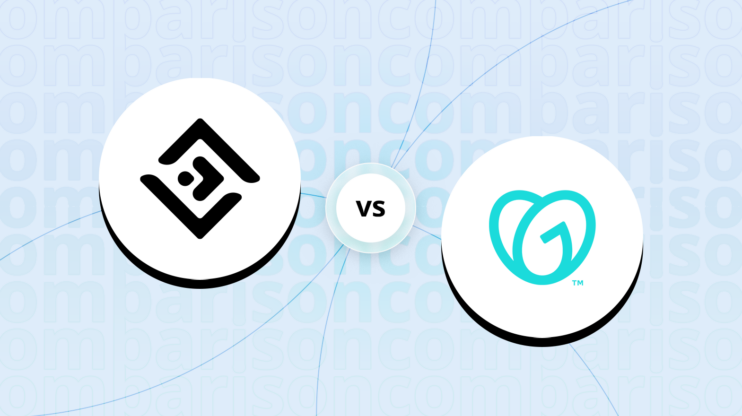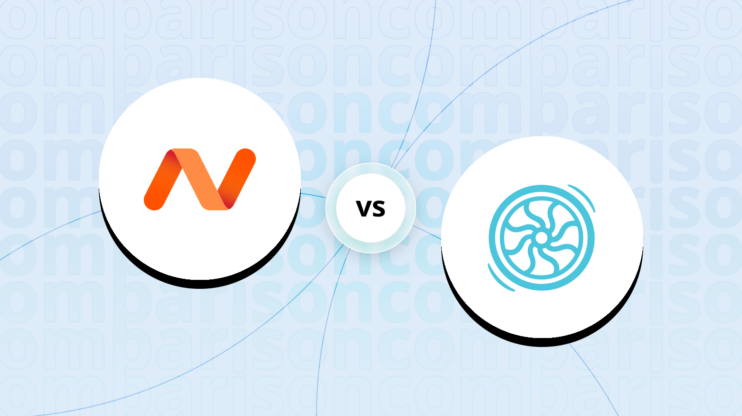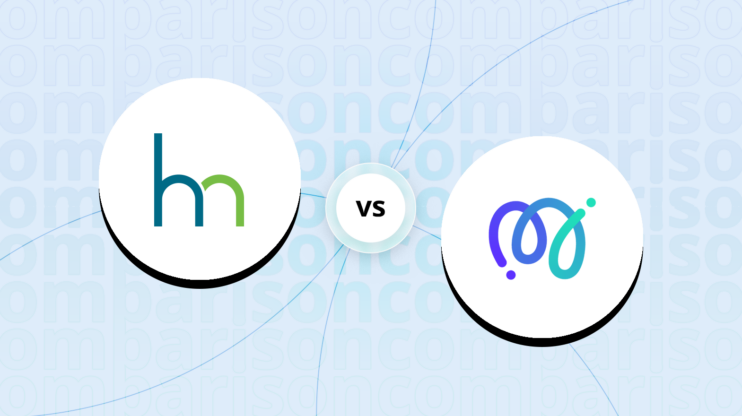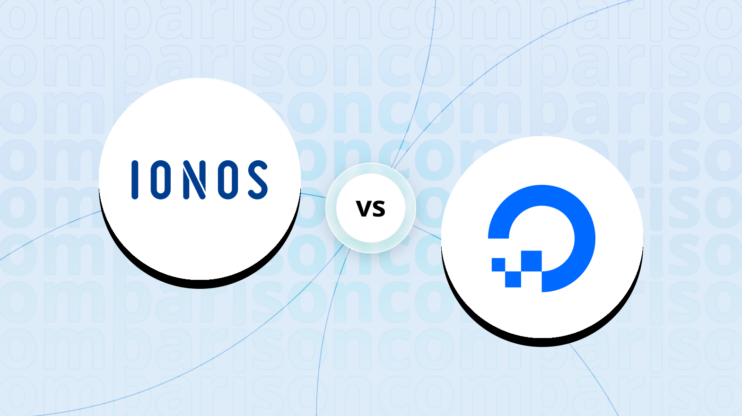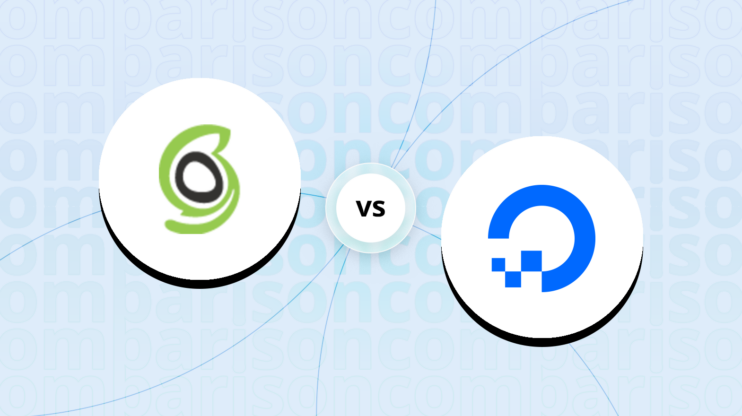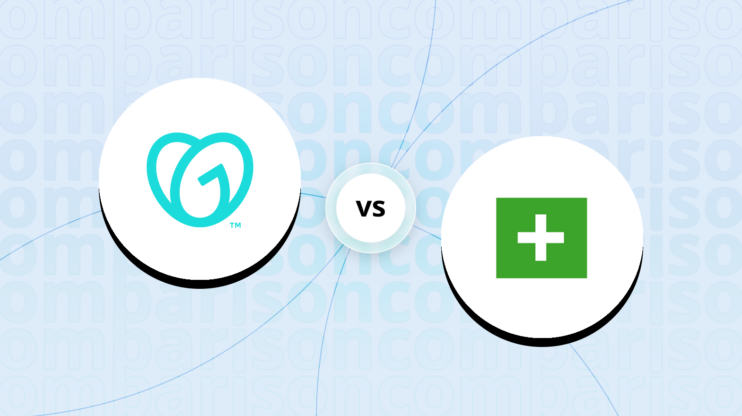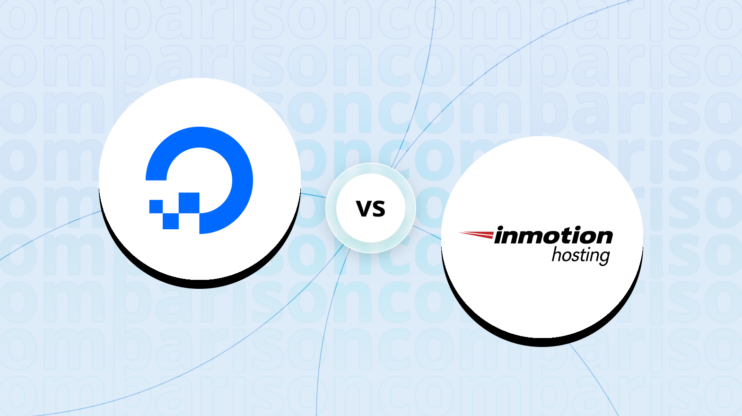Final verdict
Looking over GoDaddy vs. DigitalOcean, it’s clear why both hosts are so popular. They have both hosted millions of
websites that run on WordPress for decades, building up a loyal customer base.
-
DigitalOcean (Overall grade: 8.3)
focuses on performance and flexibility, ideal for developers and technically inclined users. It excels with a 99.99% uptime SLA, strong security measures like DDoS protection, and flexible cloud solutions such as scalable Droplets and managed Kubernetes. The platform’s transparent pricing and extensive documentation ensure cost-effectiveness and ease of use, particularly for demanding applications and large-scale deployments. However, DigitalOcean’s limited real-time support options and lack of included extras like domains and SSL certificates can be drawbacks for those needing immediate assistance or a more inclusive hosting package.
-
GoDaddy (Overall grade: 7.8)
offers a comprehensive and user-friendly hosting experience, making it an excellent choice for beginners and those seeking a hassle-free setup. With features like a free domain for a year, free email hosting, automated daily backups, and managed WordPress hosting, GoDaddy simplifies site management while reducing initial costs. Its cPanel interface is accessible to both technical and non-technical users, and 24/7 phone support further enhances the ease of use. However, it falls short in uptime reliability compared to DigitalOcean and may have higher renewal costs along with inconsistent customer service experiences. Despite these drawbacks, GoDaddy remains a strong contender for users prioritizing ease of setup and integrated services.
 Overall grade:7.8 |
 Overall grade:8.3 |
|
|---|---|---|
| Uptime and Availability | 8.6 | 9.2 |
| Hosting Performance | 8.1 | 8.8 |
| Hosting Security | 8.6 | 9.1 |
| Price | 7.7 | 8.7 |
| Hosting Features | 7.1 | 6.9 |
| Ease Of Setup | 8.7 | 8.2 |
| User Management | 5.0 | 8.0 |
| Customer Support | 8.2 | 7.8 |
| User feedback | 3.9/5 | 4.6/5 |
Hosting types offered
Both platforms provide a variety of hosting types, each designed to meet the different needs of users.
 |
 |
|
|---|---|---|
| Shared hosting | ||
| Cloud hosting | ||
| WordPress hosting | ||
| Ecommerce hosting | ||
| VPS hosting | ||
| Dedicated hosting |
Although both offer a variety of hosting plans tailored to different needs, in
certain cases, one platform may prove to be more suitable.
builder and WAF.
ecommerce sites.
professionals.
for high traffic.
efficiently.
Detailed comparison
Uptime and availability
Evaluates the average uptime statistics, uptime guarantee and overall availability of the hosting
provider
Score Components:
- Uptime percentage (30%): evaluates the uptime statistics in given period of time
- Uptime guarantee (20%): Assesses if the platform offers an uptime guarantee and
whether the actual uptime matches the promised guarantee. - General performance (25%): Evaluates how fast is the average response time and overall
it’s stability. - Responsiveness (10%): Adaptability to different devices and screen sizes.
- Availability (25%): Reflects the total downtime and number of outages.
 8.6
8.6
 9.2
9.2
Section 1: Winner DigitalOcean: Guarantees the highest uptime with extensive monitoring and alert systems.
### Section 2:
DigitalOcean offers a 99.99% uptime SLA, ensuring extremely high availability. The service provides real-time alerts, global monitoring, and customizable latency detection, making it a highly reliable option. Automated backups, snapshots, and a strong security framework add to its robust features.
### Section 3:
In comparison, GoDaddy promises a 99.9% uptime but managed to achieve 99.98% in testing. However, there have been instances of frequent short downtimes. Compensation is limited to service credits, which may not be sufficient for all users. Despite good performance metrics, the downtime could be a concern for some.
Hosting performance
Score Components:
- Hosting speed (30%): This includes SSD quality, Load times, PageSpeed score ranges,
additional information on website speed, built-in plugins for performance enhancement, available caching
methods, and CPU/RAM options - CDN (20%): Considers whether CDN is available or not, whether it’s free or paid, and
the quality of the CDN service - Available data centers (30%): Evaluates the number of data centers and their locations
globally. - Scalibility (20%): Looks at whether elastic scaling is available, the process required
to scale (manual upgrade vs. automatic scaling), the presence of dedicated servers, and the costs
associated with scaling.
 8.1
8.1
 8.8
8.8
🏆 Winner DigitalOcean: Superior flexibility and cost-effectiveness for developers
When comparing GoDaddy and DigitalOcean in terms of general performance, it becomes clear that DigitalOcean leads with its transparent pricing and rich feature set. Both hosting services boast SSD storage, but GoDaddy promises up to 40% faster server response times, while DigitalOcean offers scalable virtual machines called Droplets. GoDaddy has globally distributed data centers in North America, Europe, and Asia-Pacific, whereas DigitalOcean has a larger network with 14 globally distributed centers. Furthermore, GoDaddy provides a Content Delivery Network (CDN) only with certain plans, whereas DigitalOcean includes a CDN to improve the performance of content-heavy websites.
Website Speed
Website speed is a crucial factor for maintaining user engagement and search engine rankings. GoDaddy emphasizes its optimized servers for a 40% faster server response time and offers built-in caching mechanisms. DigitalOcean, on the other hand, uses SSD storage and comprehensive caching techniques like page caching and object caching for improved load times. While both offer CDN integration, DigitalOcean’s automatic backups and load balancing capabilities further ensure high performance and availability, making it a better choice for demanding applications.
Scalability
GoDaddy offers unmetered bandwidth and dedicated resources on its higher-tier plans, allowing for manual upgrades as your site grows. Prices for dedicated servers range between $8.99 to $44.99 monthly based on specifications. DigitalOcean shines with its elastic scaling capabilities, making it easy to add resources without needing a plan switch. It also supports horizontal scaling to distribute traffic effectively during peak periods. With a starting cost of $4 per month for a Basic Droplet and upgrade flexibility through its API and command-line interface, DigitalOcean provides a cost-effective solution for scaling needs.
Hosting security
and regulatory requirements
Score Components:
- Technical security measures (40%): This includes encryption, firewalls, DDoS
protection, secure configurations, server monitoring, access control and availability of security addons
(e.g Sitelock security). - Operational security measures (30%): Encompasses data privacy, backups and data
redundancy. - Compliance and certifications (20%): Adherence to legal and regulatory requirements
(e.g., GDPR, HIPAA) and possession of certifications (e.g., ISO 27001, SOC 2). - Business and reliability (10%): Factors in the provider’s reputation, uptime
guarantees, and customer support.
 8.6
8.6
 9.1
9.1
🏆 Winner
DigitalOcean: Proven leader in providing comprehensive security features and compliance certifications.
Both GoDaddy and DigitalOcean, have notable differences in their approaches to technical and operational
security, as well as in their compliance with regulations.
Technical security measures:
GoDaddy offers a host of security features such as AutoSSL, managed and self-managed SSL certificates, the latest PHP versions, and Web Application Firewall (WAF). GoDaddy ensures PHP versions 7.4 and 8.0 are up-to-date with extended long-term support. In comparison, DigitalOcean also provides SSL certificates, support for various PHP versions, and includes a web application firewall. Additionally, DigitalOcean offers enhanced technical features such as two-factor authentication, SSH access, and DDoS protection, which are pivotal in securing client data.
Operational security measures:
Both GoDaddy and DigitalOcean offer various operational security features, including automated backups and DDoS protection. GoDaddy provides resources on-demand, daily backups, and a global spread of data centers to enhance performance and security. It also employs CloudLinux with balanced CPU, RAM, and disk I/O limits. DigitalOcean complements this by offering cloud firewalls, load balancers, Virtual Private Cloud (VPC), and managed databases. These features ensure robust operational security, safeguarding applications from potential threats.
Compliance and certifications:
GoDaddy complies with GDPR and PCI standards to protect user data. It offers products like WooCommerce Hosting and GoDaddy Online Store that are PCI-certified. DigitalOcean goes a step further with multiple compliance certifications such as SOC 2 Type II, SOC 3 Type II, ISO/IEC 27001:2013, and CSA STAR Level 1, in addition to GDPR and PCI compliance. DigitalOcean’s compliance measures offer an extra layer of assurance for users hosting sensitive data and handling payment information.
 |
 |
|
|---|---|---|
SSL certificate |
AutoSSL, Managed, Self-managed |
Provided |
Additional security features |
WAF, Malware Scanning, Backups |
Two-Factor Authentication, SSH Access |
PHP versions |
Latest (7.4 and 8.0) |
Various |
GDPR compliance |
Yes |
Yes |
HIPAA compliance |
Not specified |
Not specified |
PCI compliance |
Yes |
Yes |
Hosting features
Score Components:
- Domains (20%): Assesses the availability of a free domain, domain purchase options, and
pricing - Email (15%): Considers if the provider offers full email hosting, or is reselling
third-party service, and if the email is only transactional or not - Website builder (15%): Checks if website builder is available, and it’s user
friendliness and overall the level of customization allowed. - Staging environment (20%): Determines if a staging environment is available, allowing
for testing changes before going live. - FTP & SFTP accounts (10%): Evaluates if and how easily users can access FTP and
SFTP accounts - Git and SSH access (20%): Assess whether Git is integrated into the hosting service and
if SSH access is provided
 7.1
7.1
 6.9
6.9
🏆 Winner
GoDaddy: Exceptional user-friendly hosting with value-added features ideal for versatile needs.
When comparing GoDaddy and DigitalOcean, both stand out for their extensive inclusions and strengths, yet they cater to slightly different user groups. GoDaddy provides an intuitive website builder suited for users needing a hassle-free experience with ample customization options. Among its notable features, GoDaddy’s web hosting plans come with a free domain for a year, free email, and a free SSL certificate — significant perks that reduce initial costs for new website owners. Additionally, GoDaddy offers managed WordPress hosting, which simplifies site management, making it a go-to choice for users wanting streamlined maintenance with added benefits like an AI creation tool and daily backups.
DigitalOcean, on the other hand, focuses more on performance and flexibility, making it ideal for developers and more technically inclined users. Their emphasis on VPS and dedicated hosting, along with strong security measures like DDoS protection and firewalls, ensures reliable and secure hosting. DigitalOcean shines with its 99.99% uptime SLA and the availability of managed Kubernetes and databases, making it suitable for complex, large-scale applications. While it might not offer free domains or SSLs outright, DigitalOcean’s dynamic product suite, including a robust cloud platform and extensive developer tools, provides strong value for those seeking more control and customization capabilities.
 |
 |
|
|---|---|---|
Free domain |
Yes, for the first year |
No |
Free SSL |
Yes, for the first year |
No |
Email hosting |
Yes |
No |
Website builder |
Yes |
No |
Staging environment |
Yes |
No |
FTP & SFTP accounts |
Yes |
Yes |
Git and SSH access |
No |
Yes |
Free backup |
Yes |
No |
Money back guarantee |
Yes |
No |
a location.
As a result in rare cases the features mentioned here can differ from the ones you see on their websites.
Both providers support a range of users from beginners to experts with user-friendly website builders and WordPress staging areas. However, in terms of developer tools, both Example hosting one and Example hosting two offer robust options including SSH access, support for multiple programming languages, and Git for version control, thus appealing to developers looking for advanced capabilities.
Email services:
GoDaddy has a clear advantage with its bundled free email hosting, simplifying the process for users to manage their emails directly from their hosting account. It supports basic email needs without the additional cost of third-party services. Meanwhile, DigitalOcean typically does not offer native email hosting. Users must resort to third-party email services like Google Workspace or Office 365 for their email needs, potentially increasing overall costs and setup complexity.
Price
Score Components:
- Plan value (40%): What each pricing tier offers.
- Transparency and clarity (30%): Clearness of pricing structures.
- Flexibility of plans (20%): Range of options to suit different budgets.
- Hidden costs (10%): Additional expenses not included in the plan.
 7.7
7.7
 8.7
8.7
🏆 Winner
DigitalOcean: DigitalOcean scores slightly higher overall, mainly due to the robust features included in their plans and the transparency of what’s included.
Evaluating the pricing of plans among various hosting providers can be complex due to their differing pricing and renewal strategies. Additionally, certain plans require annual commitments, which adds to the difficulty of making comparisons. The prices listed are based on monthly commitments; plans requiring annual commitments are indicated. Additionally, although some providers offer identical plans for WordPress and shared hosting, we have created separate tables for each to enhance clarity.
When comparing GoDaddy and DigitalOcean, it is evident that DigitalOcean provides more affordable starting prices and a wider array of features across their plans. GoDaddy offers a broader selection of plans specifically tailored to shared hosting, WordPress hosting, and managed WooCommerce stores, complemented by value-added features such as free domains and SSL certificates. In contrast, DigitalOcean emphasizes scalability, including VPS and cloud hosting with transparent and straightforward pricing. The variety in DigitalOcean’s infrastructure services, backed by robust support and SLA guarantees, makes it appealing for both developers and businesses needing flexible solutions.
 |
 |
|---|---|
|
Managed WordPress Basic $12.99
1 website, 10 GB NVMe storage, free domain, free SSL certificate, WordPress pre-installed, AI creation tool, automated malware scans and removal, weekly backups. Value for price:7.8
|
Managed WordPress Hosting via Cloudways $4/month
1 website, SSD storage, automated backups, free SSL certificate, DDoS protection, 1-click WordPress installation. Value for price:9.0
|
|
Managed WordPress Deluxe $13.99
1 website, 20 GB NVMe storage, free domain, free SSL certificate, AI creation tool, daily backups, up to 2x faster performance with CDN, DDoS protection, staging site. Value for price:8.3
|
Cloudways Managed Hosting $100 in free hosting credits
unmanaged infrastructure, SSD storage, no restrictions on WordPress plugins, no visitor cap, 24/7 support, automated vertical scaling. Value for price:9.0
|
 |
 |
|---|---|
|
Web Hosting Economy $5.99
1 website, 25 GB NVMe storage, shared bandwidth, free email, free domain, free SSL for one year, 30-day money-back guarantee, free WordPress migration tool. Value for price:7.5
|
Website Hosting Basic Droplet $4/month
1 website, SSD storage, up to 1 TB transfer, free SSL certificate, automatic backups, 14 globally distributed data centers. Value for price:8.8
|
|
Web Hosting Deluxe $7.99
10 websites, 50 GB NVMe storage, shared bandwidth, free email, free domain, unlimited free SSL, 30-day money-back guarantee, free WordPress migration tool. Value for price:8.0
|
App Platform Basic Plan $5/month
1 website, SSD storage, global data centers, free SSL certificate, automatic backups. Value for price:8.9
|
 |
 |
|---|---|
|
1 vCPU / 2GB RAM VPS $8.99
1 vCPU core, 2 GB RAM, 40 GB NVMe storage, Linux only, snapshot backups, cPanel and Plesk available. Value for price:7.9
|
Regular Shared CPU Droplet $4/month
shared CPU power, SSD storage, transparent pricing, automatic backups, 14 globally distributed data centers. Value for price:8.7
|
|
2 vCPU / 4GB RAM VPS $17.99
2 vCPU cores, 4 GB RAM, 100 GB NVMe storage, compatible with Linux/Windows, snapshot backups, cPanel and Plesk available. Value for price:8.1
|
Premium Shared CPU Droplet $7/month
enhanced memory performance, NVMe SSDs, transparent pricing, automatic backups, global data centers. Value for price:8.9
|
|
4 vCPU / 8GB RAM VPS $34.99
4 vCPU cores, 8 GB RAM, 200 GB NVMe storage, compatible with Linux/Windows, snapshot backups, cPanel and Plesk available. Value for price:8.5
|
Dedicated CPU Droplet $42/month
4 GB memory, 25GB SSD, 4TB transfer, automatic backups, transparent pricing, global data centers. Value for price:8.8
|
|
4 vCPU / 16GB RAM VPS $44.99
4 vCPU cores, 16 GB RAM, 200 GB NVMe storage, compatible with Linux/Windows, snapshot backups, cPanel and Plesk available. Value for price:8.6
|
N/A
Value for price:N/A
|
As a result in rare cases the prices displayed here can differ from the ones you see on their websites.
Enterprise plans
For enterprises, GoDaddy offers extensive features suitable for online stores, such as their Managed WooCommerce plans. These include comprehensive solutions for handling online transactions and product management. DigitalOcean’s plans, including their memory-optimized and storage-optimized droplets, cater to enterprises needing scalable, high-performance infrastructure with competitive pricing and flexible configuration options. The versatility of DigitalOcean’s infrastructure makes it particularly appealing for businesses requiring reliable, scalable cloud solutions.
Ease of setup
platform.
Score Components:
- Site migration (25%): Assesses whether the provider offers tools for site migration,
either automated or manual, and whether these services are free or require a fee. - Admin panel usability (35%): Evaluates the type of admin panel provided, such as the
standard cPanel or a custom solution, focusing on its accessibility and user-friendliness for both
technical and non-technical users. - Setup features (20%): Examines the availability and ease of use of various setup
features, including FTP accounts, file managers, email account setup, PHPMyAdmin, and easy CDN
configuration. - Help center quality (20%): Measures the quality and accessibility of the provider’s
help center resources, including articles and tutorials.
 8.7
8.7
 8.2
8.2
🏆 Winner
GoDaddy: An easy-to-setup hosting provider with a user-friendly interface and excellent support.
GoDaddy offers an industry-standard cPanel, which is known for its accessibility and user-friendliness. Both technical and non-technical users will find it straightforward to install apps, manage backups, and set security features. The interface is clean and intuitive, allowing users to quickly navigate through various functionalities without much hassle. On the other hand, DigitalOcean offers its own custom control panel known as Droplets, which is more suited for advanced users familiar with managing virtual private servers. While DigitalOcean’s panel offers flexibility and scalability, it can be somewhat daunting for beginners or those without a strong technical background.
For both platforms, simplicity is key, but they serve different user bases. GoDaddy’s cPanel is more accessible to the everyday user who might not have extensive technical prowess. Conversely, DigitalOcean’s Droplets offer deeper control, appealing mainly to developers and those comfortable with the command line. Thus, GoDaddy’s approach simplifies the hosting setup process, especially for those looking for a more guided experience, whereas DigitalOcean caters to users seeking more configurability and control over their hosting environment.
GoDaddy provides a free WordPress migration tool, which greatly simplifies the process of moving an existing WordPress site to their platform. This tool is particularly beneficial for non-technical users, streamlining the migration without the need to engage in complex procedures. DigitalOcean, in contrast, offers preconfigured apps, including WordPress, but the migration process is not as straightforward or automated, which might require more manual intervention or the use of third-party services. Both platforms offer migration solutions, but GoDaddy’s free and automated tool provides an advantage for users seeking a hassle-free migration experience.
GoDaddy’s help center is comprehensive and accessible, featuring 24/7 support via phone, chat, and SMS, along with a broad range of help articles and guides. This extensive support system ensures that users can quickly resolve any issues they might encounter. In contrast, DigitalOcean offers a wealth of documentation, tutorials, and community support. While their resources are extensive and detailed, they may not be as immediately accessible for non-technical users. Moreover, DigitalOcean’s standard customer support operates through a ticketing system, which can be less immediate than GoDaddy’s live support options.
The platforms provide extensive knowledge bases filled with guides, how-to articles, and instructional content. GoDaddy offers a wide range of resources alongside 24/7 chat and phone support. DigitalOcean also boasts a detailed help center with an intuitive search function and around-the-clock support via live chat, phone, and ticketing, ensuring comprehensive user support.
User management
accessibility.
Score Components:
- Role customization (40%): Flexibility in creating and defining user roles and
permissions. - Ease of management (30%): User interface and tools for managing users.
- Access control (20%): Effectiveness of access control measures for different user
levels. - Scalability (10%): Ability to manage a growing number of users efficiently.
 5.0
5.0
 8.0
8.0
🏆 Winner
DigitalOcean: A reliable choice for streamlined user management with ample customization options.
GoDaddy lacks detailed user management and role-based control information, which limits our ability to assess its capabilities in managing user roles, permissions, and accessibility. On the other hand, DigitalOcean allows flexible creation and definition of user roles with specific permissions. In DigitalOcean, you can clearly define roles such as Owner, Biller, and Member, each with distinct access levels. Team owners have comprehensive control over all aspects, including billing, resources, and team settings, making it easier to tailor access according to team members’ responsibilities.
For user interfaces and tools provided for managing users, DigitalOcean offers intuitive tools that simplify the process of managing team memberships. The user interface allows team owners to invite, revoke, or change roles of team members using streamlined processes. The ability to see each member’s sign-in method like Google, GitHub, or email enhances transparency within the team. Since GoDaddy’s user management information is not available, it is not possible to precisely comment on their user interfaces and tools for managing users.
Regarding the effectiveness of access control measures and the capability to manage a growing number of users, DigitalOcean stands out with its clear access distinctions among roles. Owners have full access to shared resources and billing, while Billers only see billing information, and Members get full access to shared resources without access to billing or team settings. This precise control makes scaling easier because defining roles and permissions is straightforward, even as the team grows. The approach ensures effective management without confusion about users’ access limits. Without GoDaddy’s specific details, we cannot evaluate its efficiency in managing an expanding user base or its access control measures.
DigitalOcean User Roles Table:
| Role | Description | Access highlights |
|---|---|---|
| Owner | Full control over all aspects of the team | Full access to shared resources, billing, team settings |
| Biller | Manages billing but not shared resources or settings | Access to billing information only |
| Member | Access to shared resources without billing or settings | Full access to shared resources |
Customer support
hosting provider.
Score Components:
- Support communication channels (30%): Measures the variety of customer support types
provided (live chat, chatbot, email, phone, etc.) - Availability (20%): Assesses the availability hours for each channel, including 24/7
support options. - Technical support quality (30%): Assesses whether the provider offers comprehensive
technical support, including hardware upgrades (e.g., HDD to SSD), software installations, and web
server configuration changes. - Enterprise support (20%): Checks if there are dedicated or priority support services
for enterprise-level customers.
 8.2
8.2
 7.8
7.8
🏆 Winner GoDaddy: GoDaddy’s extensive support options and additional features provide a versatile and user-friendly hosting experience.
 |
 |
|
|---|---|---|
Phone support |
||
Live chat support |
||
Chatbot |
||
Email/ticket support |
||
Enterprise support (dedicated agent, priority support) |
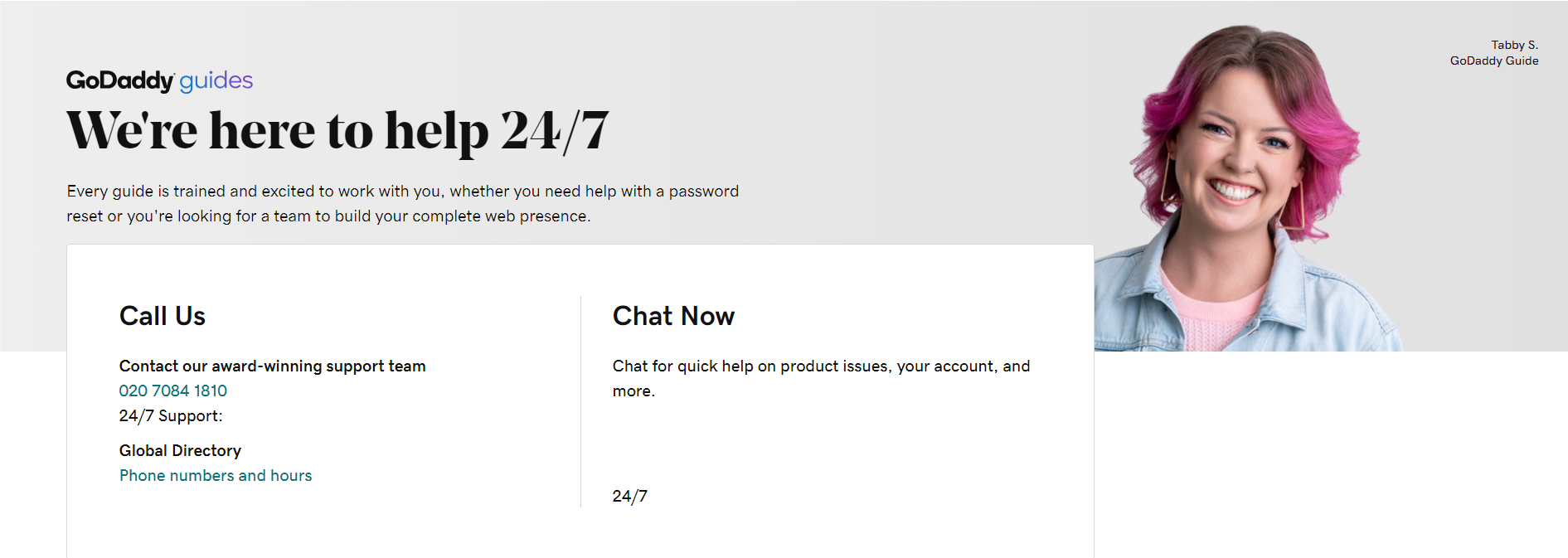
GoDaddy stands out with its 24/7 phone support, available through general and award-winning support teams, alongside extensive email support and a comprehensive knowledgebase. Offered SMS support, live chat on its U.S. subdomain, and a user community enhance the customer experience. GoDaddy also includes several helpful tools like a free 24×7 support, a free WordPress migration tool, automatic daily backups, global data centers, and a 30-day money-back guarantee.
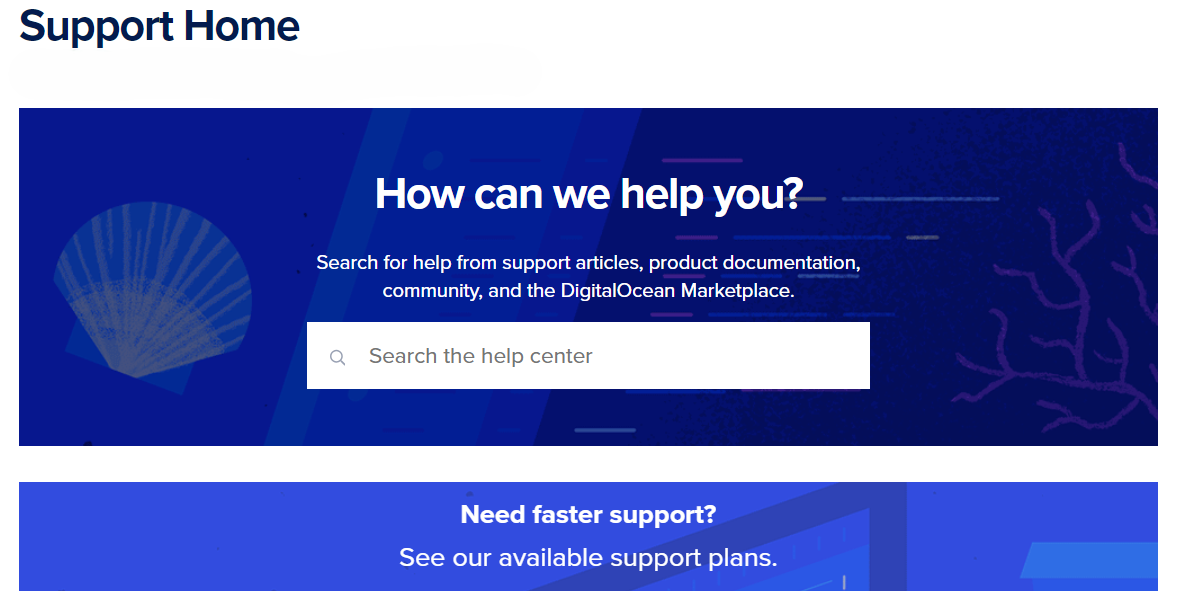
DigitalOcean, while offering strong support through email and an online ticketing system with 24/7 availability, falls short in real-time support options. Live chat is only available as a premium feature, which might not suffice for all users. The community forum and extensive documentation add value, but the absence of phone support and no refunds policy can be limiting. DigitalOcean’s pricing model and uptime guarantee are competitive, but its support features do not match up to GoDaddy’s more comprehensive offering.
User feedback
GoDaddy generally receives praise for its ease of use, affordability, comprehensive service offerings, and user-friendly interface, making it a popular choice for domain registration and basic web hosting. Many users appreciate the ability to purchase domains, web hosting, email services, and other digital products all in one place, along with frequent discounts for new customers. However, customer service experiences are inconsistent; while some users find it helpful and responsive, others report long wait times and unknowledgeable support staff. Additionally, recurring issues include high renewal costs, persistent upselling, and occasional technical difficulties.
DigitalOcean consistently garners praise for its simplicity, user-friendly interface, and transparent pricing, making it ideal for both beginners and experienced developers. Users appreciate the straightforward setup, reliable performance, and excellent customer support, highlighting features like one-click deployment and robust documentation. However, there are some minor criticisms, including a limited variety of server configurations compared to larger providers and occasional slow customer support response times. Despite these drawbacks, DigitalOcean is highly regarded for its cost-effectiveness, ease of use, and overall reliability, particularly for small to medium-sized businesses and startups.
FAQ
Which platform is better suited for hosting WordPress websites?
GoDaddy offers specialized managed WordPress hosting with features like an AI site builder and automatic daily backups, making it highly suitable for WordPress users seeking ease of setup and maintenance. In contrast, DigitalOcean provides managed WordPress hosting through Cloudways, offering extensive control and performance optimization for developers. While both platforms are well-suited, the choice depends on whether the user prioritizes ease of use (GoDaddy) or performance and flexibility (DigitalOcean).
Are both platforms suitable for beginners?
GoDaddy is particularly beginner-friendly, offering a comprehensive and user-friendly hosting experience with features like a free domain for a year, free email hosting, and a cPanel interface that simplifies site management. DigitalOcean, while powerful and flexible, is more geared towards developers and technically inclined users, so beginners may find it challenging without prior technical knowledge.
Which platform offers better customer support?
GoDaddy offers extensive customer support with 24/7 phone support, live chat, email, and a comprehensive knowledgebase, making it more accessible for immediate help. DigitalOcean provides email and ticket support, with live chat available only as a premium feature, and lacks phone support, which may not suffice for users needing real-time assistance.
Which hosting service offers more scalability options for growing websites?
DigitalOcean excels in scalability, offering elastic scaling capabilities that allow users to easily add resources without a plan switch, along with support for horizontal scaling during peak periods. GoDaddy offers manual upgrades with unmetered bandwidth on higher-tier plans, but it does not match the flexible and seamless scalability options provided by DigitalOcean.
How do the providers handle email hosting and what features are included?
GoDaddy includes free email hosting with its plans, allowing users to manage their emails directly from their hosting account without additional costs. On the other hand, DigitalOcean does not offer native email hosting, requiring users to use third-party services like Google Workspace or Office 365, which may increase overall costs and complexity.
The making of this blog
We followed a clear, step-by-step process to write and research this article.









